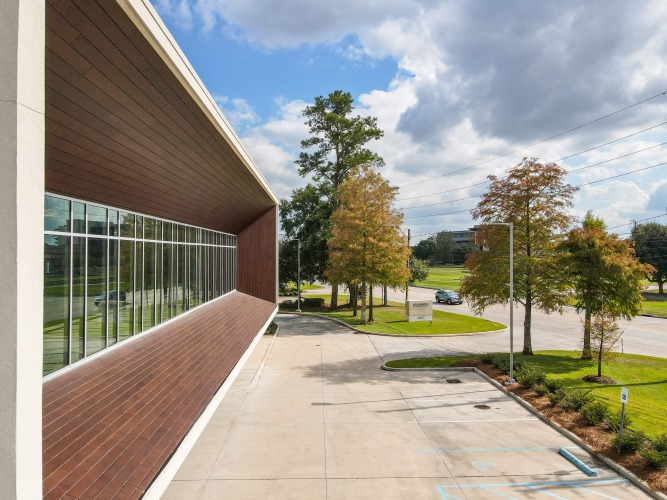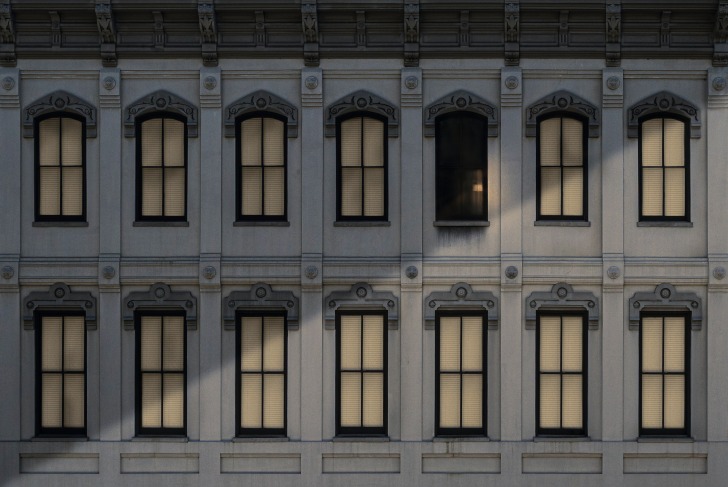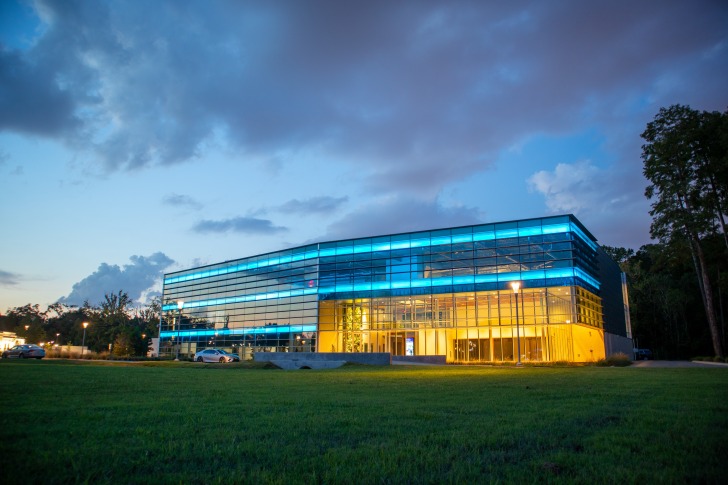Baton Rouge is considered a place that divides opinions, with some believing the city is paradise on earth while others find it terrifying.
As the second largest city in Louisiana with around 230,000 residents, Baton Rouge boasts a colorful and vibrant atmosphere, fascinating history, delicious food, and a medley of cultures.
If you decide to relocate to Baton Rouge, you will gain deep insight into Louisiana’s capital city while creating unforgettable memories.
This begs the question, is Baton Rouge a good place to call home?
If you’re considering moving to Baton Rouge, keep reading to learn more about the pros and cons of this interesting city!

Contents
Pros of Living in Baton Rouge
Several advantages exist to moving to Baton Rouge, including:
1. Affordable Housing
One of the most appealing aspects of Baton Rouge is its housing affordability.
While other parts of the United States are experiencing average home costs of around $500K, the average home price in Baton Rouge is around $100k.
In addition, since more employees are working from home, new residents are flocking to Baton Rouge, and housing prices are rising but are nowhere near other cities.
Therefore, if you get in on the ground floor now, you can make a significant profit in the future.
2. Amazing Culture
Baton Rouge has a rich culture because of the city and state’s Creole and French history.
Each year, the city goes wild for Mardi Gras celebrations, and the cuisine is best known for using Louisiana spices and fresh seafood.
Furthermore, the many colleges and universities in the area add more flavor to the city with a diversity of students from across the globe, bringing their hometown culture to the second largest city in the state.
3. Excellent Employment Opportunities
The local economy is diversified across multiple industries, including business services, government, education, and healthcare.
Baton Rouge boasts multiple medical centers, large hospitals, and many universities and colleges.
Since Baton Rouge is Louisiana’s capital, the state government is one of the largest employers in the city.
Furthermore, Baton Rouge has a thriving art and music scene, further contributing to employment.
With all these opportunities, Baton Rouge consistently has a low unemployment rate with a high living standard.
4. High Quality of Life
Most residents feel like they have a high quality of life when living in Baton Rouge.
This is because necessities like groceries, housing, and utilities remain manageable.
In addition, Baton Rouge is significantly cheaper than its older brother up the road, New Orleans.
Also, remember that only homeowners pay property taxes, so if you choose to rent, this won’t be your responsibility.
5. Low Taxes
The taxes in Baton Rouge are reasonable, with property taxes around 1%.
Compared to places in the Northeast, Illinois, and California, this is a massive bargain.
If you come from one of those areas, this giant tax change will feel like a raise.
However, the cost of living is also considerably lower, so if you can maintain your salary from one of these expensive areas, you will live like a king in Baton Rouge.
6. Manageable Size
Baton Rouge’s size, in terms of population, falls right in the middle between being a major city and a small dot on the map.
That means it’s large enough to provide the entertainment and services needed, like a Greyhound bus station, Amtrak train station, shopping centers, bars, restaurants, and hotels, to keep residents and visitors occupied.
The population balloons a little during the school year due to LSU, but the city size remains manageable.
7. Mild Winters
Winters in Baton Rouge are mild and short, featuring average temperatures of between 45 and 60 F.
However, occasional cold snaps occur since the city is inland, so don’t be surprised to see the occasional snowfall and temperatures dropping to the 30s.
In the rare occurrence that it snows in the city, it doesn’t stick, so Baton Rouge winters are comfortable compared to most other parts of the country.
One winter weather hazard to be aware of is the ice that forms during cold snaps.
8. Plenty of Fun Activities
Baton Rouge has countless events and activities available for residents and visitors.
Baton Rouge has it all, whether you want to relax by the pool, enjoy live music or performances, or attend sporting events.
Additionally, like its older brother New Orleans, Baton Rouge has a seemingly endless number of festivals throughout the year ranging from food truck festivals to art fairs.
Additionally, come September, the Louisiana State University Tigers start playing football, which can be an exhilarating experience, especially during a big game.
Cons of Living in Baton Rouge
As with any city, there are disadvantages you must be aware of before making the journey, including:
1. Frustrating Traffic
Although the traffic in Baton Rouge doesn’t compare to major cities like New York or Los Angeles, the city has plenty of frustrating gridlocks and aggressive and negligent drivers.
This is especially the case when high tourism season hits.
There are significantly more cars on the road, thus creating more frequent and more severe traffic jams with drivers from across the U.S., all of whom think they’re on the right on the roads.
While this is not a year-round experience, it’s important to understand that there will be several months of white-knuckling traffic that you must deal with.
2. High Crime
One of the biggest issues that deter potential residents from moving to Baton Rouge is the crime rate.
With so many poorly lit areas and frequent visitors, it’s easy for crimes to occur.
Area Vibes found that the Baton Rouge crime rate is 146% greater than the national average.
Therefore, if you’re planning to move to the area, you must research where to purchase or rent a home.
3. High Poverty Rate
On the surface, the low unemployment numbers ward off thoughts of poverty and homelessness.
However, when you conduct a deeper search, you’ll find that most of those jobs are unskilled, and since Baton Rouge is a blue-collar town, those positions barely break the poverty line, if at all.
Statistics show that 17.1% of Baton Rouge residents live in poverty, higher than most other U.S. cities.
In comparison, the national poverty level average is 10-13%.
4. Noisy Neighbors
One of the greatest complaints by Baton Rouge residents is noise pollution.
The loud music, traffic noise, and general commotion reverberating from the streets make it incredibly difficult to relax and sometimes sleep at night, depending on where you live.
In addition to the regular noise, the levels increase during evenings and weekends.
That means you could wake up to loud music or street noise and have difficulty falling asleep.
5. Poorly Lit Areas
To add to the safety issue, many areas of Baton Rouge are poorly lit, and in these shadows, many crimes occur.
For this reason, it’s advisable for women not to walk around alone late and night and through these unlit sections of town.
Alternatively, catch a cab or rideshare, call a friend, or have a relative drive you home.
It’s not worth taking the chance when a crime could easily be avoided.
Worst of all, many of these poorly lit areas are located in downtown Baton Rouge, where countless nighttime activities occur throughout the year.
6. Poor Mass Transit
If you’re moving to Baton Rouge from a major city, you will be significantly disappointed by the mass transit.
In comparison, New Orleans’s transit network is much more affordable, efficient, and reliable than in Baton Rouge.
The driving reason for the city’s poor mass transit system is it’s too spread out.
Beyond inefficiency, residents love their cars and love to drive, so ridership is low.
The result is there’s little money invested back into the network.
7. Summers can be Brutal
Due to its location in the south and the high humidity, Baton Rouge can be brutally hot and uncomfortable during the summer months.
Although New Orleans is slightly worse because of its ocean location, you won’t find much relief in Baton Rouge.
However, tourism continues to thrive during the summer, so it’s manageable.
Remember, when living there, you won’t be able to go home to cool climates other than your air-conditioned residence!
8. Tornadoes and Heavy Winds
In addition to the high summer temperatures and humidity, Baton Rouge is regularly in the path of tornadoes.
While these storms are not a regular occurrence, significant property damage and sometimes lives are at stake when they do appear.
Worst yet, tornadoes are so difficult to predict that they are challenging to prepare for.
Therefore, when you move to Baton Rouge, you must constantly be prepared for weather-related disasters.

Pros and Cons of Living in Baton Rouge, LA – Summary Table
| Pros of Living in Baton Rouge | Cons of Living in Baton Rouge |
|---|---|
| 1. Affordable Housing | 1.Frustrating Traffic |
| 2. Amazing Culture | 2. High Crime |
| 3. Excellent Employment Opportunities | 3. High Poverty Rate |
| 4. High Quality of Life | 4. Noisy Neighbors |
| 5. Low Taxes | 5. Poorly Lit Areas |
| 6. Manageable Size | 6. Poor Mass Transit |
| 7. Mild Winters | 7. Summers can be Brutal |
| 8. Plenty of Fun Activities | 8. Tornadoes and Heavy Winds |
Baton Rouge Safety Overview
READ THE FULL REPORT: Baton Rouge Safety Review
Safety Index:
- OVERALL RISK: MEDIUM
- TRANSPORT & TAXIS RISK: LOW
- PICKPOCKETS RISK: LOW
- NATURAL DISASTERS RISK: MEDIUM
- MUGGING RISK: MEDIUM
- TERRORISM RISK: MEDIUM
- SCAMS RISK: LOW
- WOMEN TRAVELERS RISK: MEDIUM
Frequently Asked Questions
What's the general weather like in Baton Rouge?
With a subtropical climate, Baton Rouge features hot and humid summers with mild-to-cool winters.
The air’s moisture propels precipitation with around 62 inches of rainfall annually.
Although inland, Baton Rouge is in the direct path of many hurricanes and tropical storms, which produce strong winds and heavy rains that lead to flooding of the Mississippi River.
What foods is Baton Rouge best known for?
Cajun and Creole cuisine, crawfish boils, gumbo, and oysters are always at the top of visitors’ must-try lists.
Why is Baton Rouge special?
Named by French explorers “the Red Stick City,” Baton Rouge is the capital of the state, the place where Cajun and Creole cultures meet, and is home to the state’s flagship university, LSU.
Furthermore, the city holds Louisiana’s largest parish and is the fifth largest city on the Mississippi.
What are some of the best neighborhoods in Baton Rouge?
Some of the best places to live in the city include Mid City, Old Goodwood, Southdown’s, Spanish Town, and the Garden District.
Aside from feeling safe, statistically speaking, these neighborhoods have the lowest chance of being violent or property crime victims.
Is Baton Rouge pet friendly?
Many public places around the city allow pets on leashes.
It’s simple to find bars and restaurants that are pet friendly; perform a simple Google search.
Also, dog parks are plentiful around Baton Rouge to keep your furry friends entertained for a while!












Events like the Red Stick International Animation Festival and the Baton Rouge Symphony Orchestra keep the city busy, busy and I wouldn’t have it any other way. Some neighborhoods do experience higher crime rates, and being vigilant is important. However, the city’s diversity, culinary scene, and Mardi Gras celebrations more than make up for these downsides. For me this city has the perfect ratio of unique blend of Southern charm, cultural richness, and a growing sense of community. I wouldn’t move for the world!
I have to admit this city surprised me! Baton Rouge has a vibrant arts and culture scene, with events like Live After Five and the Baton Rouge Gallery Art Market Safety is generally decent in well-traveled areas, but like any city, some neighborhoods might require extra caution. Nonetheless, the city’s delicious cuisine, including mouthwatering Cajun and Creole dishes, and its lively atmosphere during festivals make it a great destination for the whole family. We always have a lot of fun when we’re in Baton Rouge.